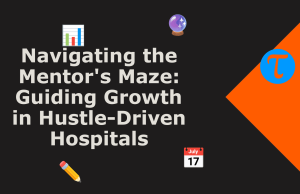In the grand tapestry of the modern era, the workplace has emerged as a dynamic protagonist, continually reshaped by the relentless evolution of technology. The once-sturdy bedrock of traditional work constructs now gives way beneath our feet, marking a seismic shift towards a digital-first culture that promises both unprecedented opportunities and formidable challenges.
As an experienced female leader and digital transformation expert, I’ve witnessed first-hand how this metamorphosis unfolds within the labyrinth of our offices, factories, and virtual spaces. Today, our discourse orbits around pivotal questions: How are technologies like artificial intelligence (AI) and automation not merely influencing, but actively redefining roles and responsibilities? What trials and treasures do these waves of change harbor for the denizens of this new workplace realm?
The seismic influence of AI and automation is evident across industries, catalyzing a renaissance in how businesses operate. The roles once anchored in rote tasks now float untethered, as automation assumes these repetitive burdens, ushering in an age where human creativity and strategic thinking become the anchors of professional worth. The metamorphosis, however, is double-edged: while automation liberates, it also displaces, necessitating a workforce that is both agile and endlessly adaptable.
For employers, the crucible of this transformation demands a reevaluation of talent, a recalibration of the skills that are prized within their ranks. The digital-first workplace worships not at the altar of tradition, but at the shrine of innovation. Here, skills like data literacy, digital communication, and an agile mindset are the holy sacraments. Employers must not just seek these qualities, but actively cultivate them through continuous learning and development programs.
For employees, the digital-first culture is a land of opportunity, albeit one that requires a map and a compass. The compass points towards lifelong learning, a non-negotiable in the journey towards relevance and success. In this landscape, one’s ability to adapt — to learn coding, to master digital tools, to embrace new methods of collaboration — becomes a key survival strategy.
However, within this brave new world of work, the specter of the digital divide looms large. The rush to a digital-first economy threatens to leave segments of society stranded on the shores of progress. As companies and leaders, we bear the responsibility to build bridges over this divide, ensuring that access to digital tools and education becomes as universal as the air we breathe.
Reflecting upon the societal fabric, we recognize that the digital-first workplace is but one thread in a larger tapestry. The tapestry will only hold if it’s inclusive, allowing every individual the opportunity to contribute to and benefit from the digital economy. Measures to narrow the digital divide, such as promoting digital literacy, subsidizing internet access, and supporting diverse and equitable hiring practices, become not just corporate social responsibility, but essential strategies for sustainable progress.
In conclusion, the future of work is a horizon glowing with the light of digital innovation. It beckons us to navigate through the fog of uncertainty and embrace the winds of change. As leaders, employers, and employees, the charge is ours to set sail on these tech tides, to chart a course that is both competitive and humane, to ensure that the evolving workplace is a realm where every worker can find their haven, and every workplace can become a lighthouse of progress.
Let us embark on this journey together, steering towards a future that is as inclusive as it is innovative, as compassionate as it is competitive. The future of work is not a distant dream; it is a present challenge. It’s time we rise to meet it.

























